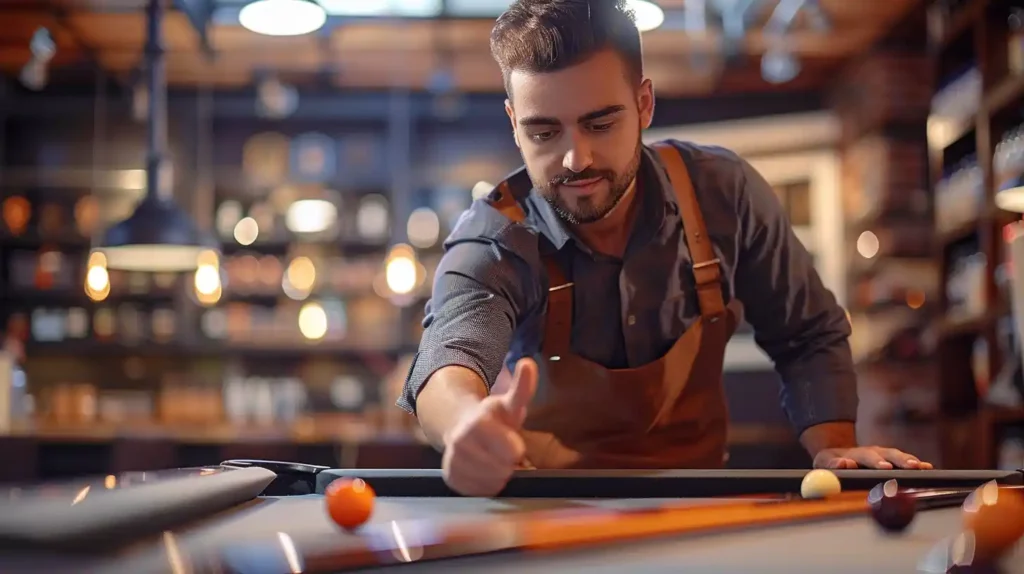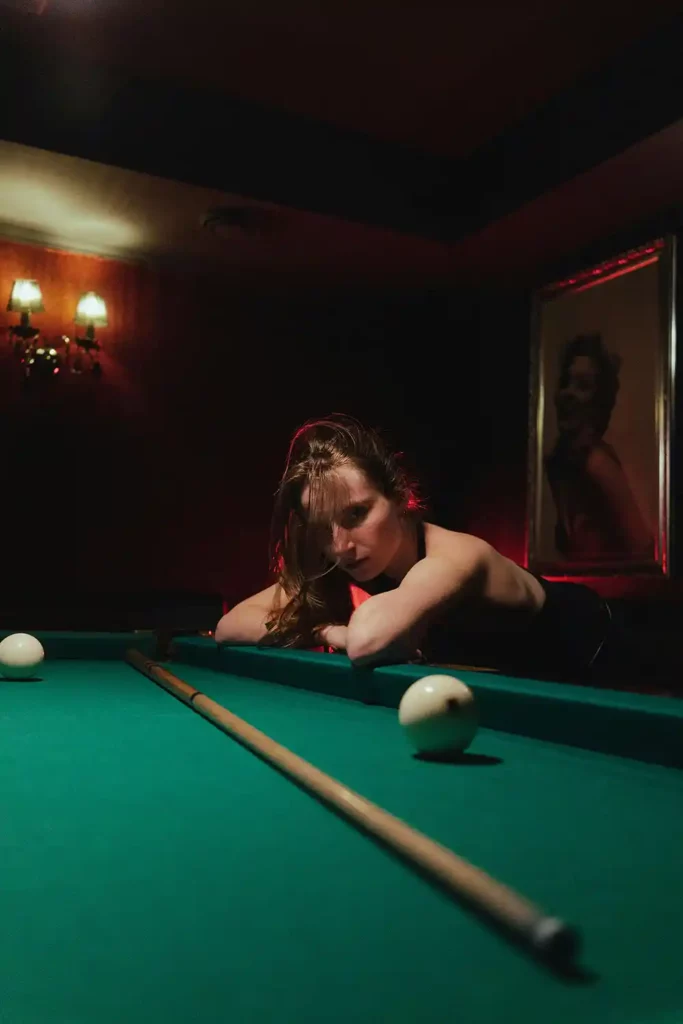
Investing in a high-end pool cue is an excellent way to elevate your billiards game, offering superior accuracy, feel, and durability. For enthusiasts looking to save while still obtaining a top-quality product, the used market offers vast potential. This guide will navigate the nuances of selecting a premium used pool cue, ensuring your purchase enhances your play without compromising on quality.
Understanding Pool Cue Specifications
Length
The length of a pool cue, typically ranging from 57 to 59 inches, is designed to suit the average adult player, providing a comfortable reach across the pool table without over-extension, which is crucial for precision and control during play.
Weight
The weight of a cue, generally between 18 to 21 ounces, plays a pivotal role in determining the cue’s balance and the impact force of the stroke. Heavier cues can offer more power behind each shot, which might be preferable for breaking, while lighter cues provide greater control and finesse, useful for intricate spin and placement shots. This customization allows players to choose a weight that best complements their playing style.
Tip
Tip diameter also affects gameplay significantly. Diameters from 11.75 to 13 mm vary to suit different types of billiards sports; smaller tips provide more precise contact with the ball, ideal for snooker where accuracy is paramount, whereas larger tips are favored in pool for better cue ball control and broader contact surface, facilitating various spin techniques.
These specifications are not just arbitrary numbers; they cater to enhancing player performance by aligning the physical properties of the cue with the player’s physical requirements and strategic needs. Each choice in length, weight, and tip size can be thought of as a tool to refine different aspects of a player’s game, emphasizing either power or precision based on personal preference and the specific demands of the game being played.
Materials and Construction
While ebony and cocobolo are prominent in high-end pool cues for their beauty and durability, they are not the only woods used. Many quality cues also feature maple, ash, and rosewood, which are prized for their stiffness and impact resistance, crucial for consistent performance. Additionally, some cues incorporate advanced materials like carbon fiber or phenolic resins in the shaft. These synthetic materials offer increased strength, consistency, and longevity, appealing to players looking for cutting-edge technology in their equipment. The construction of these cues often includes intricate inlays and decorative rings that not only enhance the visual appeal but also showcase the meticulous handcrafting involved, signifying the cue’s premium nature.
Key Features of High-End Pool Cues
High-end pool cues distinguish themselves with features like low-deflection shafts, which are engineered to minimize errors from sideways spin on the cue ball, enhancing accuracy. When examining these shafts, look for labels or descriptions indicating low-deflection technology—manufacturers often highlight this as a premium feature.
The joints in quality cues are crucial for ensuring durability and a consistent feel throughout the cue. They are typically made from stainless steel or other high-strength materials like titanium or phenolic resin, which provide a firm and stable connection between the shaft and the butt. Check for smooth threading and a tight, seamless fit to ensure stability.
For comfort and control during play, ergonomic grips or wraps such as Irish linen or leather are common. These materials not only improve the grip but also absorb moisture and provide a non-slip surface, enhancing precision during long play sessions. When selecting a cue, feel the grip material and test the comfort level by holding the cue in a shooting stance.
These features collectively contribute to the performance, comfort, and aesthetic appeal of high-end pool cues, making them a preferred choice for serious players.
Assessing the Condition of a Used Pool Cue
When assessing a used pool cue, several detailed inspections are crucial for determining its condition and performance potential:
Straightness: Checking the cue for straightness is fundamental. Roll it on a flat surface to ensure it doesn’t wobble, indicating warping. A straight cue is vital for accurate and predictable play.
Ferrule and Joint Condition: Inspect the ferrule and joint closely for any signs of cracks, chips, or misalignment. These are critical areas that affect the cue’s integrity and the smooth transfer of force from the cue to the ball. Misalignments or damage can degrade performance and may require costly repairs.
Tip Inspection: The tip should be firmly attached and in good condition. A well-maintained tip is essential for effective shot control and ball spin. Look for uniformity and absence of excessive wear or mushrooming around the edges, which can affect shot accuracy.
Overall Wear: Examine the cue for signs of excessive use, such as deep scratches, dents, or a glossy patina from hand oils, which might suggest the cue has been heavily used. High-resolution photos or a hands-on inspection can help identify subtle signs of wear or previous repairs, which could hint at underlying issues not immediately visible.
These detailed checks help ensure you select a used cue that maintains its performance characteristics and reduces the likelihood of facing unexpected repair costs.
Where to Buy Used High-End Pool Cues
Purchasing from established billiard equipment shops or directly from manufacturers during sales can provide peace of mind regarding the authenticity and condition of the cue. Online marketplaces and forums dedicated to billiards can also be good sources, but require diligence in verifying the seller’s reputation and the product’s history. Fortunately through our 20 plus years in business, we have ammassed quite a large selection of high quality second hand used pool cues, feel free to call us or visit our Michigan location to see them in person!
What to Avoid When Buying a Used Pool Cue
Avoid cues with signs of significant repair such as over-polished surfaces or mismatched woods, which can indicate underlying structural issues. Be wary of extremely low prices, as these can often be a sign of counterfeit products. Always verify the cue’s provenance; look for official markings, serial numbers, or certificates that authenticate high-end brands. Additionally, ensure there is a reasonable return policy in place. Whenever possible, conduct a hands-on inspection or a trial to feel the cue’s balance and weight, as these aspects are crucial for performance and difficult to assess from pictures alone.
Maintenance Tips for High-End Pool Cues
Proper maintenance is essential to preserve the quality and longevity of your pool cue. Store the cue in a climate-controlled environment to prevent wood warping. Regularly clean the cue with a dry or slightly damp cloth to remove dirt and oils, and periodically check and replace the tip to maintain performance.
Final Thoughts
Choosing a used high-end pool cue is a smart way to access quality equipment at a lower cost. By understanding the key features, knowing what to check for in terms of condition, and where to shop, you can make an informed decision that will contribute positively to your game. With proper care, a high-end pool cue is a lasting investment in your both your billiards arsenal as well as your pool game!


